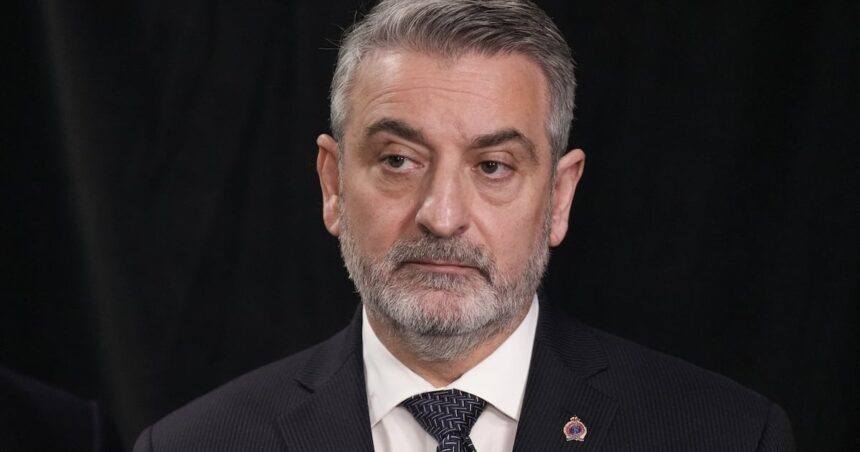The Ontario government’s latest warning to the Toronto District School Board threatens a provincial takeover if the board can’t balance its books—a situation that has parents, educators, and community leaders deeply concerned about the future of education in Canada’s largest school district.
Education Minister Stephen Lecce delivered what many are calling an ultimatum to the TDSB this week, stating he would “take over” the board if it fails to identify sufficient budget cuts to address its $26.7 million deficit. This confrontation marks a significant escalation in the ongoing tension between provincial authorities and local education governance.
“The province is essentially putting a gun to the board’s head,” says Maria Gonzalez, a parent of two TDSB students and coordinator with the Toronto Education Advocates Coalition. “They’ve consistently underfunded education while demanding more cuts. Where does it end?”
The TDSB, serving approximately 247,000 students across 583 schools, has already implemented substantial reductions in recent years. Board Chair Rachel Chernos Lin has repeatedly highlighted that further cuts would directly impact classroom experiences and essential student services.
According to internal TDSB documents I’ve reviewed, the board has trimmed more than $65 million from its budget over the past three years, eliminating hundreds of positions including educational assistants, guidance counselors, and maintenance staff. Despite these measures, the financial gap persists, largely due to what board officials describe as chronic provincial underfunding that hasn’t kept pace with inflation or growing student needs.
The Ministry’s takeover threat isn’t without precedent. The province appointed supervisors to manage the Toronto Catholic District School Board in 2008 and the York Region District School Board in 2017 following governance concerns. However, those interventions were primarily related to trustee conduct rather than budget management.
Downtown Toronto trustee Shelley Laskin told me the minister’s approach feels unnecessarily combative. “We’re not refusing to balance our budget—we’re saying these cuts will hurt kids. The ministry seems unwilling to acknowledge that reality.”
The confrontation has broader implications for education governance across Ontario. Critics suggest it represents a troubling pattern of centralization that undermines local democratic oversight of education.
“School boards exist because communities deserve a say in how their children are educated,” explains Dr. Charles Pascal, former Ontario Deputy Minister of Education. “This heavy-handed approach from Queen’s Park effectively tells parents and local communities their voices don’t matter.”
Business leaders are also watching the situation with concern. The Toronto Region Board of Trade notes that education quality directly impacts the city’s economic competitiveness and talent retention. “Strong public education is fundamental to our prosperity,” says vice-president Leigh Smout. “Short-term financial decisions shouldn’t compromise long-term educational outcomes.”
For teachers on the frontlines, the situation feels increasingly precarious. “We’re already stretching resources to the breaking point,” says Marjorie Thompson, who teaches at a northwest Toronto elementary school. “My classroom has 29 students, including six with identified special needs and limited support. I honestly don’t know what further cuts would mean for these kids.”
The province maintains that the TDSB could find efficiencies without compromising education quality, pointing to administration costs and underutilized school buildings. Ministry spokesperson Grace Lee stated that “all school boards must live within their means while ensuring students receive the education they deserve.”
However, an analysis by the Canadian Centre for Policy Alternatives suggests TDSB administration costs are already among the lowest per-pupil in the province, while school utilization rates reflect complex community needs rather than simple inefficiencies.
As this standoff continues, families worry about immediate impacts on classroom experiences. “My son’s music program was already cut last year,” says Parkdale parent Devon Williams. “Now we’re wondering what’s next—larger classes? Fewer supports? At







